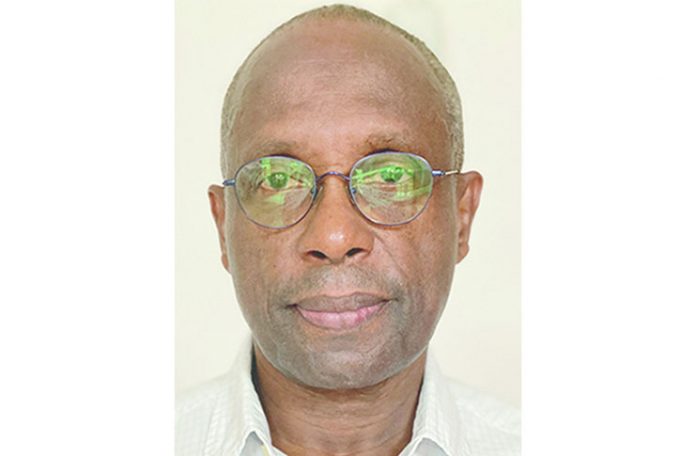‘Votes alone don’t validate elections’
…says former minister Dr Henry Jeffrey
THE Guyana Elections Commission’s (GECOM) obligation in Guyana’s current electoral situation is to factor into its final decision all credible allegations of electoral wrongdoing with the sole aim of being guided by the compass of law and the best interest of the electorate.
Such is the held position of political analyst and former Education Minister Dr. Henry Jeffrey and made public in his weekly column, Future Notes, on Wednesday.
He made the comments: “All the propaganda and efforts to create a fait accompli have failed to convince me that GECOM must simply declare a winner from the recount and that the claims of illegalities must await an elections petition. GECOM is an independent body and the commissioners are expected to collectively review the evidence and put their minds together to come to collective decisions and solutions in the interest of the nation.”
His position does not align with some politicians who have made light of numerous missing statutory documents from ballot boxes in the current elections and have doubted the existence of electoral fraud in the form of persons voting for the dead and migrated.
While one side of the main political divide argues that every election will produce margins of error and that the ones discovered are minimal, the other side argues that the irregularities number over 6,000 and have compromised approximately 90,000 votes.
In his column, Dr. Jeffrey examined how GECOM, according to law and compared to other international cases, could proceed and what will be the likely challenges.
Establishing his position, he cited the Zimbabwe case of Chamisa v Mnangagwa which suggests that, in order for an election to be truly free, fair and credible, it must be conducted in full compliance with the constitution and applicable electoral laws.
He said that once the petitioner — which role has been primarily taken up by the APNU+AFC coalition — provides the commission with the facts which point to acts of electoral irregularities, the burden of action then shifts to the commission as the electoral body.
Dr. Jeffrey said that, though some countries have departed from this, the historic narrative has been that an election will be invalidated if the irregularities, mistakes or errors highlighted affected the result of the elections.
In one case he cited where Malawi departed from this practice; he stated that this had resulted from the decision that the electoral malpractices were not enough to alter the results of the presidential elections.
Pointing to another case, he noted the Pabey v. Pastrick case at the Indiana Supreme Court ruled that the East Chicago mayoral primary, in which East Chicago Mayor Robert Pastrick defeated his challenger George Pabey, had to be redone.
Pabey had complained that votes in the elections were solicited from the poor and the frail, while there were cases of persons voting in place of the dead. It was the court’s conclusion that the integrity and results of that election were compromised.
Meanwhile, the Kenyan Supreme Court in 2018 invalidated the presidential elections after election forms were found with missing watermarks and serial numbers; some were unsigned by returning officers (ROs) and others were not signed by party agents. The elections were invalidated, although they were deemed “passed” by all international observers. In this case, a 1.4 million vote margin separated the top two candidates.
The Carter Center commented on that occasion: “…the court’s decision reinforced the independence of the judiciary.”
Referring once again to the Zimbabwe case of Chamisa v Mnangagwa, Dr. Jeffrey put forward: “The coalition is claiming that over 80,000 votes have been tainted by fraud and bearing in mind the apparent importance of strong political pressure, the PPP/C is attempting to create a fait accompli. However, ‘for an election to be truly free, fair and credible it must be conducted in full compliance with the constitution and applicable electoral laws.’ Thus, the votes in the boxes are only one aspect of the test that an election has been valid.”

